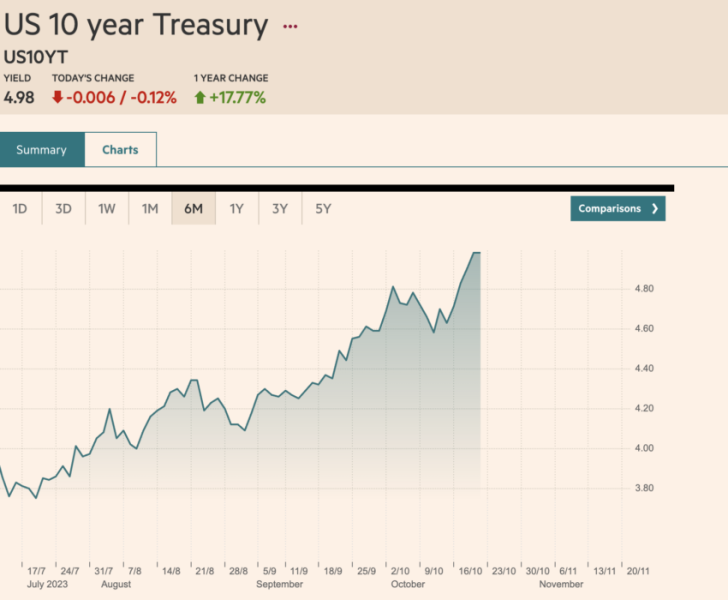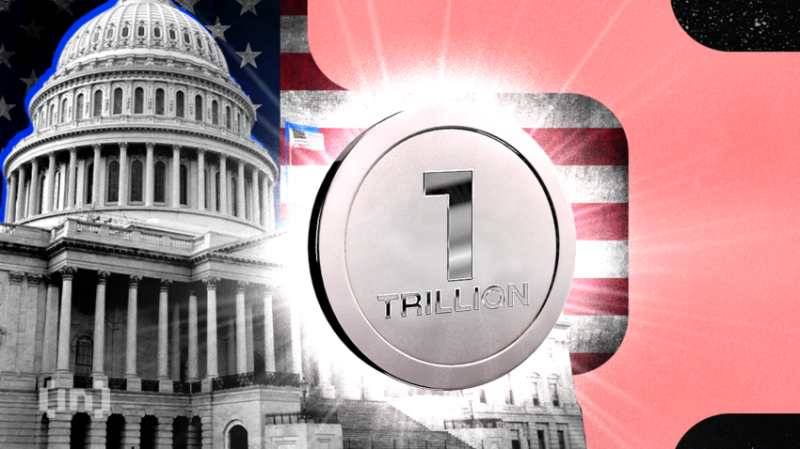Investors looking for safe assets amid the Israel-Hamas conflict drove yields down recently, but the bond market has since continued its yearlong trajectory, paving a path for a Bitcoin (BTC) spot exchange-traded fund (ETF).
Investors drove yields higher as the US Federal Reserve and other central banks’ policies appeared to cool prices that, around 18 months ago, were red-hot. However, market shocks introduced by labor strikes, wars, and political challenges have caused prices in several sectors to remain high, causing central banks to suspend cuts for the time being.
High Treasury Yields Upset Playbook
The recent Israel-Hamas conflict caused a brief pause in the bond selloff as investors sought shelter. In October, data from the US Commodity Futures Trading Commission revealed record levels of long positions in US Treasuries.

US 10-year yield | Source: Financial Times
“Everyone knows the playbook – you buy duration on the last hike… that playbook is being challenged.”
But some investors say the issue is overblown, as many investors are enjoying the benefits of coupon payments rather than being overly concerned with short-term price movements. Jack McIntyre of Brandywine Global argues that while the selloff may be painful now, investors can reap the rewards if they hold fast to a long-term view.
“I think what is happening in the bond market is net positive for the next decade. We’re actually going to have income in the coming decade. It may be painful now, but if you will hold on, this will create opportunities.”
Bitcoin ETF Arrival Could Be Well Timed
Economists at BlackRock and other investment managers widely predict the Fed will hike rates at most once more in 2023. As the bond market suffers, institutions may consider investing client assets in a Bitcoin spot exchange-traded fund (ETF).
The US Securities and Exchange Commission (SEC) has delayed ruling on several ETFs, which has led investment managers to think the SEC could approve several applications simultaneously. Bloomberg ETF expert Eric Balchunas says there is a 75% chance that the SEC will approve multiple ETFs before the end of the year.
If this happens, shorter-term investors could favor Bitcoin over Treasuries in their portfolios. Institutional inflows will legitimize Bitcoin as a genuine asset class whose correlation with stock markets continues to decline, even as Treasury yields rise.
In 2023, Bitcoin has outperformed the S&P 500, an index representing 80% of the market capitalization of US public companies. The largest cryptocurrency is up 80%, while the S&P has risen 10%.
The crypto asset has also outperformed the Bloomberg global aggregate bond index, a benchmark for passive bond funds, down 3.6% year-to-date. Bitcoin’s decoupling from both the stock market and the bond market means it could favored by investment managers as an alternative asset in the coming months.
